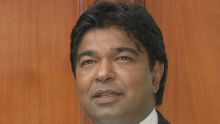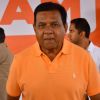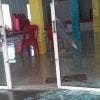
All that I thought about rehabilitation and ethics of allied health professionals went for a toss when I heard of the case of the Speech Therapist who had allegedly abused of innocent children with disabilities. As an Occupational Therapist and by extension an Allied Health Professional (AHP) myself, my immediate reaction was disbelief; I attempted to find reasons for this – that person must surely not be qualified, he must not be registered with the local Speech Therapy association and so on and so forth. This was the kind of thing we would hear about other professions, not mine. I was faced with cognitive dissonance of the highest level as I struggled to reconcile two of my deepest beliefs:
a. That AHPs are always agents of help, care and protection for people with disabilities.
b. That all people, most specifically the most vulnerable people of our society, should never face abuse of any kind
Here I was, trying to come to terms with the fact that an AHP had allegedly abused the very people they were supposed to care for. I was outraged by the case, wanting instant justice for the victims. Immediately afterwards however, I was also bombarded with numerous social media posts/radio testimonials vilifying Speech Therapists, posts speaking of the abuse of power of an AHP, of the trauma of the children, criticising education and clinical experience of Therapists and of failure to uphold ethical standards.
Publicité
To those posts, to the caricatures saying “Speech The-Rapist”, I say ENOUGH! Enough of vilifying members of a noble profession! Enough of this criticism of the whole profession! Enough of conveniently forgetting that speech therapists have been working hard for the welfare of people and children with disabilities..
Speech Therapists go through four years of rigorous training, which includes extensive clinical training. To be able to practice, they need to be registered not just with a local association but also, in accordance with the new laws in the country, with the Allied Health Professionals Council. They facilitate communication for children/people with disabilities and are the only profession capable of providing this vulnerable group with the tools required so they may have a voice to express themselves. To blame the whole profession is not only prejudicial but also dangerous to the future welfare of people with disabilities.
In attempting to protect people/children with disabilities, one must not forget that this group has very clear needs that can only be targeted by AHPs meaning Speech Therapists, Occupational Therapists and Physiotherapists. By using derogatory and demeaning terms like “The-Rapists”, we are actually condemning an entire demographic which has consistently worked and advocated for the independence of People with Disabilities. The autonomy of people/children with disabilities can only be facilitated and scaffolded by AHPs. Not teachers, not doctors, not even parents. AHPs are rigorously trained for mitigating the big gap between disability and ability. One needs to be very careful about creating distrust here. Such stigmatising attitude causes harm to other individuals who are fighting hard for the independence of people/children with disabilities.
I know I speak on behalf of all my AHP colleagues here when I say: We strongly condemn what has allegedly happened to our children with disabilities and we stand against such abusive behaviour, no matter who is the perpetrator. As one of my colleagues rightly said, we should condemn the abuse, the alleged abuser, not the profession. Abusers can be found anywhere, everywhere, in every profession. The alleged actions of one cannot become reason for bringing down a whole profession. Our actions should be aimed at protecting the children from abuse, not at vilifying an entire demographic for the alleged mistakes of one person. It is extremely important to understand that by spinning a web of mistrust towards members of the speech therapy profession and by extension all AHPs, we are NOT protecting our children. Instead, the foundation is being laid right now, in front of our very eyes, for increasing disability. We will be setting children with disabilities 20 to 30 years back with these attitudes, to times when they did not have AHPs to support their development, when there were no AHPs, slowly but surely, moving children with disabilities into a better quality of life. With such mistrust, the valuable work of AHPs will definitely be undermined.
The trauma of these children cannot be denied. It cannot be denied that somewhere down the line, we have failed to protect a very vulnerable group. The mental impact may well be carried into adulthood. And as an AHP myself, I cannot shy away from facts. Children with intellectual disabilities are more likely to be abused by people they know and during day time (Autism Speaks, 2022). It is difficult to extrapolate on the situation in Mauritius given the sheer lack of facts and figures governing disability. However this certainly does not mean that action towards the imposition of strict measures to protect our children should not be taken.
This brings me now to highlight an important point – the failure is three-pronged here – the failure of the alleged abuser to uphold the ethics of his noble profession, the failure of the school to ensure the protection of the children, and the immense, loud and clear failure of the entire system to protect children with disabilities. A system that has been created for the welfare of children with disabilities but has now been shown to hold a reactive rather than proactive approach to such welfare.
At this point in time, all AHPs of the country, including speech therapists, are/should be registered with some local/regional/international association linked to their respective professions. We are also expected to be registered under the Allied Health Professionals Council, even though we are still awaiting confirmation of our registration. As per reports, the alleged abuser was not registered with the Special Education Needs Authority (SENA). The SENA is the responsible body under which all SEN school and staff under SEN school should be registered. This person was either recruited without being registered or recruited and was expected to get registered. It is therefore reasonable to wonder whether the SENA have feedback mechanisms in place for ensuring that such registrations are not overlooked. The norms and standards of SENA do not mention the requirements for registration of medical or rehabilitation staff in NGOs or SEN schools even though it does say any resource person should be duly registered. Which brings me to question how this school had allowed this person to work for around 1 month (as per reports again) without registration. The feedback mechanisms for such recruitment and registration appear to be flawed.
Saprea, an international organisation against sexual abuse, mentions that one of the means of defending children with disabilities is through use of augmentative and alternative communication – a skill and technique used by speech therapists and occupational therapists. AHPs are tools of defence against abuse so I completely understand the feeling of distress and anger of parents of victims. Seeing a breach of ethics of such traumatic nature enrages me. However, I have been hearing uninformed people speaking of control of therapy, for instance, setting cameras in therapy rooms or having clear and open spaces for therapy. Such measures can be highly detrimental for therapy. Clear, open spaces may not adequate for working with children with attention-deficit or for children on the autism spectrum. The physical settings of therapy are carefully planned and controlled by the therapist to ensure maximum benefit to the children. So dictating how the therapy room will be set up will most definitely negatively impact the progress of children. Use of cameras in therapy rooms, while most definitely being a good way to deter perpetrators, would also pose a serious problem. There is concern about confidentiality associated with use of cameras in therapy room. Confidentiality and privacy of children with disabilities are of utmost importance; it would be easy to leak videos of therapy hence breaching confidentiality of the children. No doubt that settings of therapy can be improved and protective measures implemented – for instance having assistants or carers accompanying therapists in their sessions could work well. This of course engages creation of assistant positions or carer positions that should be duly trained for helping therapists. Maybe something the SENA can be proactive about; the University of Mauritius, which already has the infrastructure for training, could offer such training in partnership with the SENA.
At the heart of it all however remains a failed system. As I mentioned, a system focussed on being reactive. The fact that another case in which an adolescent with disabilities has been abused by a carer has also now made the headlines is a solid indication of the need for proactive measures to be taken. Mauritius is signatory of the UN Convention for The Rights of People with Disabilities; it has laws and policies (albeit minimal and poor) concerning Education of Children with Disabilities. These cases should be seen as a strong call for the creation of clear, complete and infallible policies worked out by competent and informed people in the field of Disability. The SENA may not necessarily be the right entity for this – this requires inter-sectoral and inter-ministerial effort combined with community-driven action. It requires the ability to come together for the right measures to be taken and implemented. This is a call for the People with Disabilities Act to be expedited.
It should be evident to all of us – the profession is NOT responsible for the alleged actions of one individual. This vilification should cease. The problem lies elsewhere and diverting our focus from the actual issues will NEVER help our children. One individual does not define this honourable profession. For the future welfare of our children with disabilities, as a respect for the noble profession of Speech Therapy, stop stigmatising.
About the author: S.Chemen, Lecturer in Occupational Therapy – University of Mauritius, Faculty of Medicine and Health Sciences & PhD Scholar – Disability Studies (University of Cape Town)

Notre service WhatsApp. Vous êtes témoins d`un événement d`actualité ou d`une scène insolite? Envoyez-nous vos photos ou vidéos sur le 5 259 82 00 !





















![[Info Soirée] : La bataille des foules a bien eu lieu](https://defimedia.info/sites/default/files/styles/square_thumbnail/public/thumbnail_050124_1.jpg?itok=C_fJcP5e)